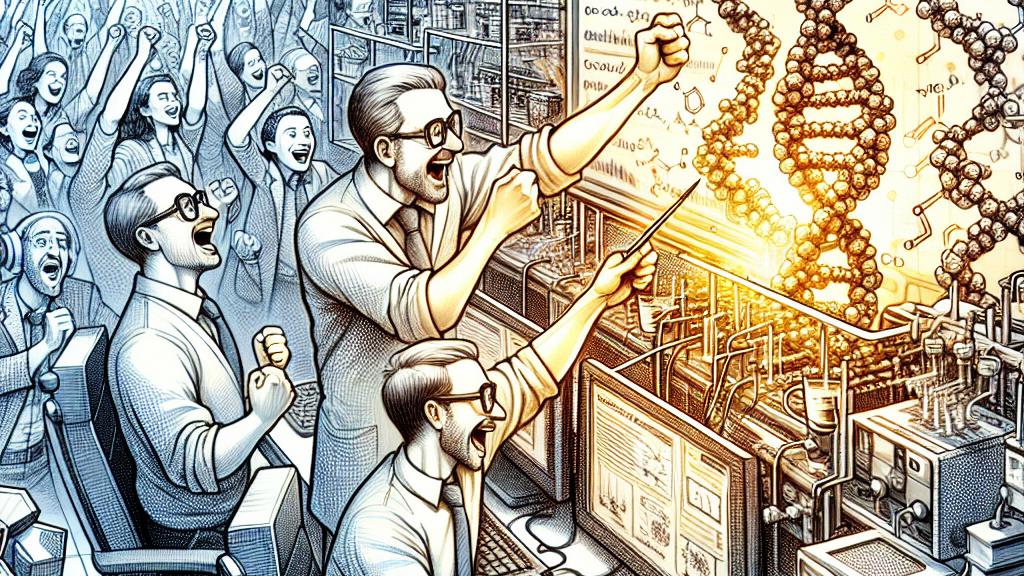Machine Learning Revolutionizes Protein Folding and Wins Nobel Prize in Chemistry
Overview
- The 2024 Nobel Prize in Chemistry celebrates groundbreaking machine learning innovations that unraveled the protein-folding mystery.
- DeepMind’s AI showcased remarkable prowess, predicting the intricate 3D structures of proteins based only on their amino acid sequences.
- Understanding protein folding is paramount; misfolded proteins can trigger devastating diseases like Alzheimer’s and cystic fibrosis.

The Groundbreaking Achievement
In an extraordinary recognition of innovation, the 2024 Nobel Prize in Chemistry was awarded to the brilliant minds of Demis Hassabis, John Jumper, and David Baker. These researchers, operating at DeepMind—an artificial intelligence company with ties to Google—embarked on a bold journey to tackle the age-old enigma of protein folding. By employing advanced machine learning algorithms, they achieved what was once thought impossible: accurately predicting how proteins fold into their complex three-dimensional structures from their amino acid sequences alone. This monumental breakthrough not only marked a historic shift from traditional academic research to technology-driven inquiry, but it also illuminated a new frontier in our quest to understand the fundamental building blocks of life.
Understanding Protein Structure
Proteins are the essential molecules that drive nearly every process within living organisms, functioning in roles such as catalyzing reactions, transporting materials, and providing structural support. To visualize their significance, consider proteins as intricately designed machines influenced by their amino acid sequences—their blueprints. If a protein misfolds, it can lead to diseases such as Alzheimer’s, cystic fibrosis, or diabetes, underlining the critical nature of understanding how they achieve their shapes. For years, scientists have struggled against the complexity of protein folding, akin to attempting to assemble a 3D puzzle blindfolded. However, with the advent of machine learning, researchers now utilize sophisticated simulations that reveal how proteins maneuver through an intricate web of interactions, resembling a well-choreographed dance. For example, the algorithms developed allow scientists to visualize potential folding pathways, leading to the discovery of novel proteins with therapeutic applications—essentially creating new keys for old locks in medical science.
The Role of Machine Learning in Science
Machine learning, a powerful subset of artificial intelligence, has become an indispensable tool in the modern scientific toolkit, enabling systems to learn and adapt through data analysis. This dynamic technology is not merely a trend; it is revolutionizing how researchers approach complex challenges across various fields. Prominent milestones, such as DeepMind’s AlphaGo achieving an astonishing victory over human champions in Go or AlphaZero redefining chess strategies, exemplify the potential of AI to solve intricate problems. The application of machine learning to protein folding represents a notable turning point in biochemistry, forging a path to deeper insights into the nature of life itself. The seamless integration of technology and biology showcases the remarkable adaptability of science as researchers leverage these innovations to unlock the mysteries of protein behavior. As boundaries blur between disciplines, the scientific community is poised to embark on groundbreaking collaborations, promising not just discoveries, but a paradigm shift in our understanding of health and disease.

Loading...